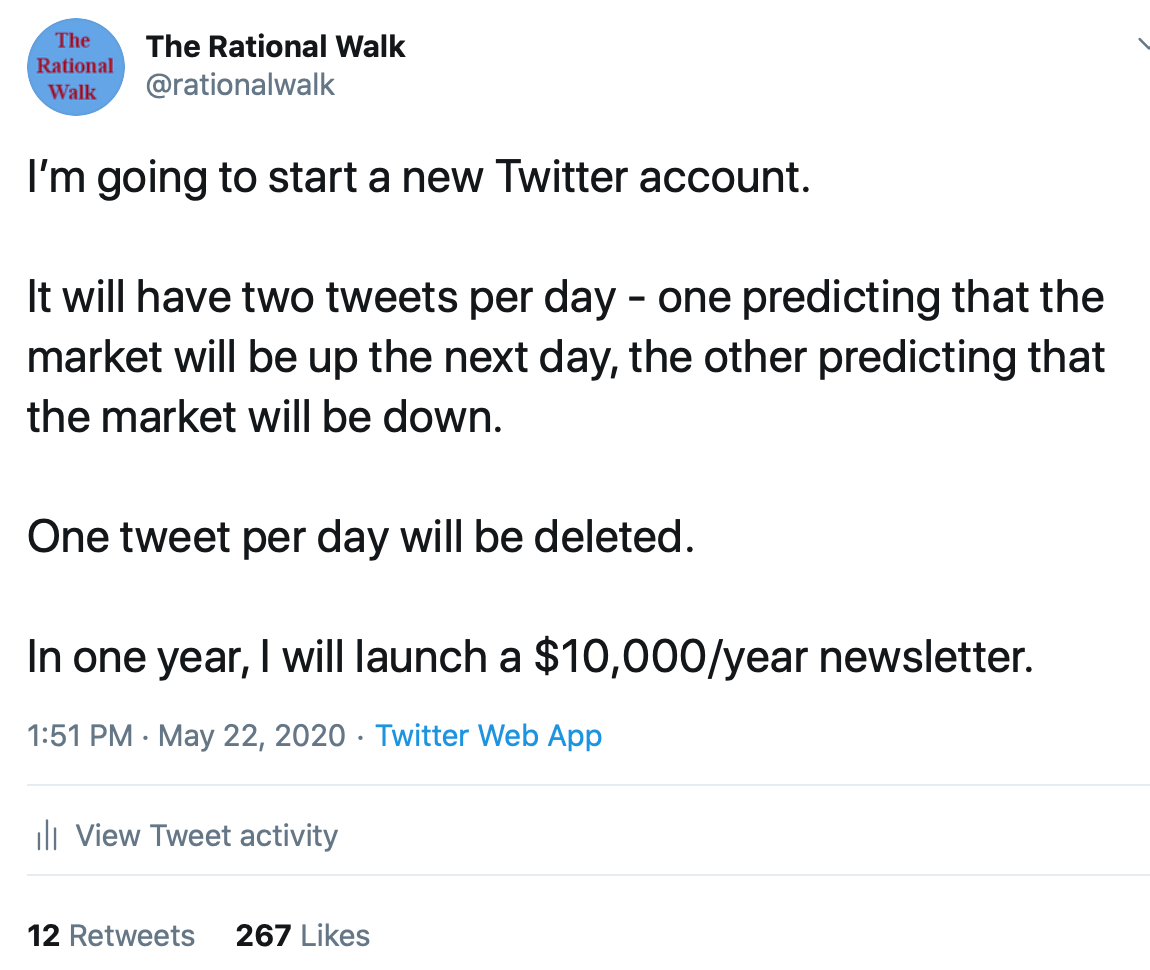In Today's Issue:
The Joys of Compounding
Prediction Addiction
Empowering Quality Shareholders
Odds & Ends
The Joys of Compounding
In his new book, The Joys of Compounding, Gautam Baid does an excellent job of taking several steps back from financial analysis and relating how his life story shaped who he is as an investor, how seeking a broad-based education and the “worldly wisdom” that comes from it formed his intellectual foundation, and only then describing how this has translated into financial independence through intelligent investing. It might sound like a cliché, but value investing is more than a profession. It is also a lifestyle.
Human beings seem hard-wired to think in linear terms which makes it difficult to appreciate the massive benefits that come from sustained effort over a long period of time. The power of compound interest is poorly understood by the general public, although universally understood by experienced investors. Less obvious examples of compounding involve the snowballing effects that come from accumulating knowledge over many decades. Reading widely in multiple disciplines has the potential to exponentially increase wisdom. Similarly, compounding goodwill in business and personal relationships usually only bears fruit over the course of many years.
Baid’s familiarity and experience with the Indian economy is apparent throughout the examples he cites. This can actually be viewed as a positive in the sense that investors unfamiliar with the Indian stock market are exposed to companies that they would otherwise not read about. As Baid points out, India is a fast growing economy sure to have many winners in the decades to come.
Guy Spier wrote the foreword for this book which is fitting because Spier's The Education of a Value Investor, is also a great example of a book that combines the author's personal journey as an investor with useful insights into the investment process.
Read The Rational Walk's full review of The Joys of Compounding
Prediction Addiction
The new decade is just five months old and it is safe to say that absolutely no one predicted the course of events that have taken place so far in 2020.
COVID-19 is the obvious event that forecasters did not account for. But assume that some prescient forecasters succeeded in predicting the dislocations caused by COVID-19. How many of those forecasters would have also predicted that the S&P 500 would only fall by 5.8% through the end of May? And that the Nasdaq Composite would rise by 5.8% over the same period?
And how many of those forecasters would have predicted that the brutal homicide of George Floyd at the end of May would result in massive protests in major U.S. cities, in some cases escalating to full-blown riots over the past weekend, hampering efforts to restart the economy? And who would have predicted that market participants would shrug off all of this bad news and that stocks would rally early this week?
No one predicted any of this, obviously. It would have been impossible to do so.
Of course, none of this will stop people from making new predictions.
For example, over half of CFOs surveyed by CNBC expect that the Dow Jones Industrial Average will reach new highs, but only after breaking through the March lows. They have to be right not once but twice.
Meanwhile, Goldman Sachs has abandoned its call for a steep selloff in stocks because “the powerful rebound means our previous three-month target of 2,400 is unlikely to be realized." Goldman now believes that downside risk is likely limited to 10% due to fiscal and monetary policy support.
Of course, there are many market commentators who approach the topic with an appropriate level of humility. Acknowledging the many uncertainties that exist, as Howard Marks did again in his latest memo, Uncertainty II, and that the best we can do is consider the range of possible outcomes seems to be a more fruitful way of thinking about risk in general.
Even Warren Buffett cannot do much better than to think about risk in terms of ranges of possible outcomes while adopting a defensive posture, as he described at the Berkshire Hathaway annual meeting last month.
Nevertheless, I have a solution for the prediction problem:
This joke is the modern day equivalent of the famous Baltimore Stockbroker Parable. Unfortunately, many forecasters will attempt to bury their incorrect calls and trumpet their supposedly prescient insights.
Caveat Emptor!
Empowering Quality Shareholders
Lawrence Cunningham will host a webinar on Friday, June 5 at 3:00 pm Eastern Time to discuss his ideas regarding how companies can attract and retain quality shareholders. Cunningham will be familiar to many readers who have read his extensive work on Berkshire Hathaway. His most recent book, Margin of Trust, was reviewed on The Rational Walk earlier this year. The webinar will cover topics from Cunningham's recent paper and forthcoming book, Quality Shareholders.
Odds & Ends
Here are some interesting articles published over the past week:
A Fast Coronavirus Vaccine, Without Cutting Corners by Luciana Borio and Scott Gottlieb (WSJ)
How Warren Buffett is fighting to ‘keep the wolves away’ from Berkshire Hathaway — and winning by Lawrence Cunningham (MarketWatch)
An Unlikely Hero for 1906, 1929...and Today by Jason Zweig (WSJ)
How Marcus Aurelius Conquered Stress (and the Rest of Us Can Too) by Ryan Holiday
Restaurants Say Socially Distant Dining Rooms Could Wipe Out Business by Heather Haddon (WSJ)
Quote of the Week
“There are decades where nothing happens, and there are weeks where decades happen.”
-- Vladimir Lenin
Copyright, Disclosures, and Privacy Information
Nothing in this newsletter constitutes investment advice and all content is subject to the copyright and disclaimer policy of The Rational Walk LLC.
Your privacy is taken very seriously. No email addresses or any other subscribers information is ever sold or provided to third parties. If you choose to unsubscribe at any time, you will no longer receive any further communications of any kind.


